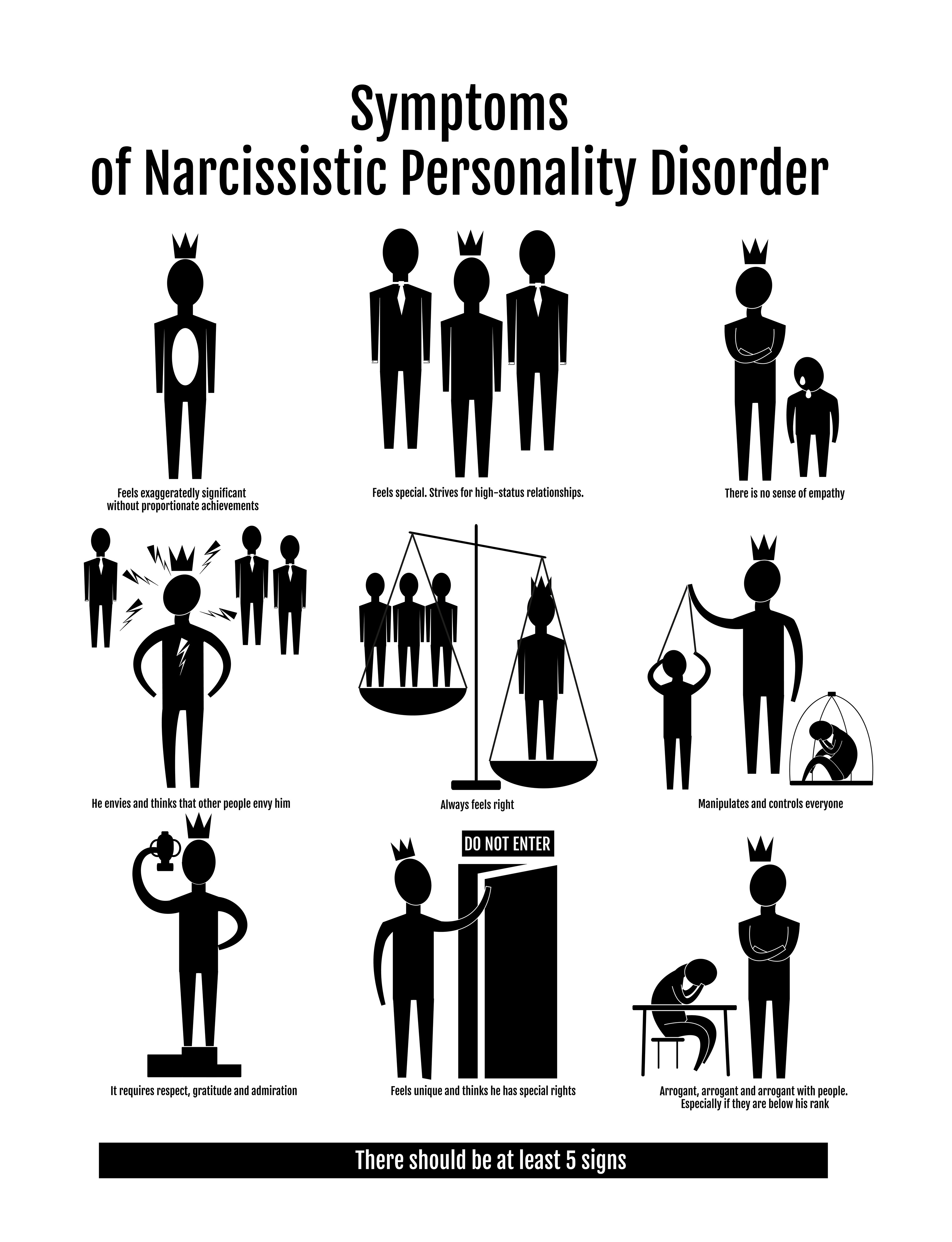As a BetterHelp affiliate, we receive compensation from BetterHelp if you purchase products or services through the links provided
Narcissism often sparks debate and discussion in various contexts, and the Bible is no exception. The Bible does not explicitly mention narcissism, which is characterized by an excessive interest in oneself and a lack of empathy for others. However, several biblical passages and principles indirectly address the issue, offering valuable insights into dealing with narcissistic behaviors and attitudes.
A careful examination of the Bible reveals messages about vanity, pride, arrogance, and selfishness, which can be linked to elements of narcissism. It is vital to understand these concepts to draw valuable life lessons from biblical teachings and develop a proper attitude towards oneself and others. By analyzing biblical perspectives on narcissism, one can grow in grace and faith, navigate relationships with narcissistic individuals, and cultivate a well-balanced outlook on life.
Key Takeaways
- The Bible offers indirect insights into narcissism through messages about vanity, pride, and selfishness.
- Understanding biblical teachings on narcissism helps cultivate proper attitudes towards oneself and others.
- Biblical perspectives guide one in dealing with narcissistic individuals and promoting personal growth.
 Understanding Narcissism
Understanding Narcissism
Narcissism is a personality trait characterized by a sense of entitlement, a need for constant admiration, and a lack of empathy for others. It often results in selfish, arrogant, and conceited behaviors. Pride is central to narcissism, as narcissists typically exhibit an inflated sense of self-importance and superiority over others.
The concept of narcissism can be traced back to the Greek myth of Narcissus, a beautiful youth who fell in love with his reflection and became the symbol of self-love and vanity. In modern psychology, narcissism is recognized as a personality disorder known as Narcissistic Personality Disorder (NPD). Individuals with NPD exhibit extreme levels of narcissism that can damage their relationships and overall mental health.
Narcissism is not exclusive to any particular culture or belief system and can manifest in various settings, including religious communities. Spiritual manipulation by a Christian Narcissist can pose significant challenges to the health and unity of a faith-based community.
The Bible has much to say about narcissism and its associated qualities, although the term itself is not explicitly mentioned. Many passages warn against the dangers of pride, selfishness, and arrogance, emphasizing the importance of humility, compassion, and empathy in one’s interactions with others. For example, Proverbs 16:18 states, “Pride goes before destruction, a haughty spirit before a fall.”
In the New Testament, Jesus provides a clear example of how to live a humble and selfless life, often condemning the pious and self-righteous behaviors of the Pharisees. He encouraged his followers to practice humility and compassion rather than seeking personal praise or recognition. Philippians 2:3-4 advises, “Do nothing out of selfish ambition or vain conceit. Rather, in humility, value others above yourselves, not looking to your interests but each of you to the interests of the others.”
By examining the teachings and examples found in the Bible, it becomes evident that narcissism and its associated traits directly oppose the core values of Christianity. Followers of Christ are called to cultivate humility, empathy, and a genuine concern for the well-being of others, thus leading a life that opposes the destructive, self-centered qualities of narcissism.
 Biblical Perspectives on Narcissism
Biblical Perspectives on Narcissism
The Bible offers insights into understanding narcissism and dealing with its consequences. Narcissism, a form of excessive self-love and self-centeredness, can be considered a sin as it opposes the teachings of humility, compassion, and empathy. Throughout Scripture, God encourages individuals to be truthful and righteous while warning against pride, arrogance, and self-centered behavior.
For instance, Proverbs 16:18 states, “Pride goes before destruction and a haughty spirit before a fall.” This verse highlights the dangers of narcissism and emphasizes the need for humility. Moreover, in Matthew 23:12, Jesus Christ cautions against self-exaltation, saying, “And whoever exalts himself will be humbled, and he who humbles himself will be exalted.”
The Bible also offers guidance on coping with narcissistic abuse, providing strength, courage, and comfort to those affected. Verses such as Psalm 27:1 remind individuals of God’s unwavering support: “The Lord is my light and my salvation; whom shall I fear? The Lord is the strength of my life; of whom shall I be afraid?”
In dealing with narcissists, exercising discernment and setting healthy boundaries is essential. Proverbs 22:24 advises, “Do not make friends with a hot-tempered person, do not associate with one easily angered.” Establishing distance from narcissistic individuals can protect one’s mental and emotional well-being.
Ultimately, the Bible emphasizes cultivating a healthy relationship with oneself, others, and God. By embracing humility, truth, and righteousness, individuals can overcome the adverse effects of narcissism and foster a more compassionate and empathetic way of living.
 Narcissism and the Sin of Self Love
Narcissism and the Sin of Self Love
In the Bible, narcissism can be linked to the sin of self-love. Scripture warns against excessive self-focus and selfishness in various passages. One of the most notable verses discussing this behavior is 2 Timothy 3:2, which states, “For people will be lovers of self, lovers of money, proud, arrogant, abusive, disobedient to their parents, ungrateful, unholy.” This passage highlights the dangers of putting oneself first and neglecting the needs and feelings of others.
One of the core teachings of Christianity is the importance of love for both God and one’s neighbor (Matthew 22:36-40). Narcissism contradicts these values, as it elevates the individual above others and can lead to a lack of empathy and compassion. In Philippians 2:3-4, believers are encouraged to “do nothing from selfish ambition or conceit, but in humility count others more significant than yourselves. Let each of you look not only to his own interests but also to the interests of others.” Acknowledging and prioritizing the needs of others is crucial in avoiding the sin of narcissism and cultivating a selfless love that aligns with Biblical teachings.
Proverbs, known for their wisdom and guidance, also address the issue of selfishness and its consequences. Proverbs 18:1 says, “Whoever isolates himself seeks his desire; he breaks out against all sound judgment.” This verse emphasizes the dangers of self-absorption, as it often leads to poor decision-making and a disconnect from the wisdom found in the community and relationships with others.

Grace, Faith, and Dealing with Narcissism
The Bible offers guidance on dealing with narcissism through grace, faith, and mercy. Narcissism refers to an inflated sense of self-importance and a lack of empathy for others. While the term “narcissism” is not explicitly mentioned in the Bible, the message of grace and faith can help us mitigate the harmful effects of these traits.
Grace is God’s unmerited favor towards human beings. We receive forgiveness, salvation, and the ability to change through grace. In dealing with narcissism, grace helps us understand that people can change and grow beyond their self-centered tendencies. By recognizing that change is possible, we can extend grace to others and show them the path to redemption.
Faith plays a crucial role in overcoming narcissistic tendencies. It enables us to trust God’s wisdom and lean on His strength to transform our lives. When we acknowledge our shortcomings and rely on God for guidance and assistance, we can move away from narcissistic behavior and adopt a more humble and empathetic approach to life.
Mercy is a biblical principle that focuses on compassion and forgiveness. It offers the understanding that everyone makes mistakes and warrants forgiveness despite transgressions. In dealing with narcissism, mercy involves showing empathy to those struggling with self-importance and offering patience and forgiveness when necessary.
Together, grace, faith, and mercy offer a way to combat narcissistic tendencies in ourselves and others. By embracing these principles, we can promote personal growth, encourage humility, and foster deeper connections with those around us. Recalling these teachings may help maintain a balanced perspective, fostering a healthier interaction if faced with a narcissist.
 Consequences of Narcissistic Behavior
Consequences of Narcissistic Behavior
Narcissistic behavior, as described in the Bible, often leads to negative outcomes and consequences for individuals engaging in such actions. Throughout the scripture, we can find references to the pitfalls and dangers that come with self-centered and arrogant attitudes.
One significant consequence of narcissism is the inevitable fall that follows prideful behavior. Proverbs 16:18 states, “Pride goes before destruction and a haughty spirit before a fall.” This verse suggests that those consumed by their ego and self-importance will likely face setbacks and disappointments in life.
Moreover, narcissistic individuals often engage in wicked actions as they prioritize their desires over the well-being of others. Psalm 10:4 says, “In his pride, the wicked man does not seek Him; in all his thoughts, there is no room for God.” This verse highlights a connection between self-absorption and sinful behavior, as those solely focused on themselves often neglect their spiritual well-being and moral compass.
Another consequence of narcissistic behavior is the darkness that envelops the individual and those around them. In Matthew 6:23, Jesus warns, “But if your eye is evil, your whole body will be full of darkness. If the light within you is darkness, how great is that darkness!” Narcissism can lead to a person’s inner light being obscured, resulting in spiritual darkness that affects their relationships and interactions.
The Bible speaks of various consequences of narcissistic behavior, including an inevitable fall, wicked actions, and spiritual darkness. By recognizing and addressing these negative outcomes, individuals can learn and grow from their experiences and strive toward humility and kindness instead.
 Biblical Responses to Narcissism
Biblical Responses to Narcissism
Narcissism, characterized by excessive self-love and focus on oneself, can be problematic for both the individual and those around them. The Bible offers guidance on dealing with narcissistic behavior by emphasizing the importance of wisdom, servitude, obedience, avoidance, and self-denial.
Wisdom is greatly valued in the Bible and can be a key factor in addressing narcissism. Proverbs 9:8-9 states, “Reprove not a scorner, lest he hate thee: rebuke a wise man, and he will love thee.” This verse encourages those who encounter narcissistic individuals to approach them with wisdom and discernment, as their prideful nature may react negatively to criticism.
Regarding servitude, the Bible encourages believers to “‘serve one another humbly in love’ (Galatians 5:13). Serving others can counteract the self-centered tendencies of narcissism by directing one’s focus outward and fostering empathy for others.
Obedience to God and His teachings can also serve as a remedy for narcissism. In Colossians 3:23-24, it is written, “Whatever you do, work heartily, as for the Lord and not for men, knowing that from the Lord you will receive the inheritance as your reward.” By obeying and prioritizing God’s will over one’s desires, we can diminish egotistical inclinations.
Sometimes, avoidance may be the best course of action when confronted with a narcissistic individual. The Bible warns against engaging with argumentative and divisive people in Proverbs 26:4, which states, “Answer not a fool according to his folly, lest thou also be like unto him.” Recognizing when it is prudent to avoid conflict can help preserve one’s mental and emotional well-being.
Lastly, the Bible teaches self-denial as a means to counteract narcissistic tendencies. Jesus said in Luke 9:23, “If anyone would come after me, let him deny himself and take up his cross daily and follow me.” Developing a perspective of selflessness and prioritizing the needs of others can ultimately lead to a more humble and empathetic mindset.
Utilizing these biblical teachings on wisdom, servitude, obedience, avoidance, and self-denial can provide effective guidance for addressing the negative effects of narcissism in one’s life and relationships.
Final Thoughts
The Bible indirectly addresses narcissism through teachings on humility, selflessness, and love toward others. It encourages believers to prioritize their faith in God and to show grace to others, recognizing that everyone has imperfections.
The importance of treating others with respect and compassion is emphasized throughout the scripture. By practicing these virtues, individuals can counteract the negative aspects of narcissism and develop a healthier approach to relationships in their daily lives.
Moreover, the Bible presents a view of God as a source of unconditional love and support. Believers’ lives should reflect God’s love, and they should strive to serve and care for others in their communities. This selfless lifestyle starkly contrasts the self-centeredness and inflated sense of importance often found in narcissistic individuals.
Thus, while the Bible does not explicitly mention narcissism, its lessons guide believers to cultivate empathy, humility, and a genuine concern for others. By embracing these values, one can find a balance between self-love and love for others, ultimately leading to a fulfilling and spiritually enriched life.
Frequently Asked Questions

Can God change a narcissistic spouse?
God can lead people to change, but ultimately the decision to change is up to the individual. Praying for guidance and support when dealing with a narcissistic spouse is important. Involve spiritual counselors or trusted advisors to support you and your spouse navigate this journey.
Narcissistic characters in the Bible
There are a few characters in the Bible who have been interpreted as demonstrating narcissistic traits. Examples include King Nebuchadnezzar, who was excessively prideful and boastful, and King Herod, who put his interests and agenda above others. However, these stories also serve as cautionary tales, as these characters experience consequences for their actions.
Spiritual aspects of narcissism
Narcissism can distort a person’s God-given role in relationships and society. It may cause them to prioritize self-interest over God’s will. The Bible warns against pride, selfishness, and the pursuit of personal glory and instead encourages humility, compassion, and selflessness.
How to cope with a narcissist spiritually
Coping with a narcissist spiritually may involve prayer, seeking guidance from scripture, and finding support within your faith community. Keeping emotional and spiritual boundaries is also crucial. Remember to practice self-care and always prioritize your spiritual well-being.
Does the Bible address narcissistic parents?
The Bible doesn’t directly address narcissistic parents but offers wisdom for dealing with difficult people, including parents. Scriptures emphasize respecting and honoring parents while maintaining healthy emotional and spiritual boundaries.
Divine protection from narcissists
Divine protection comes from seeking God’s guidance, wisdom, and support when dealing with narcissistic individuals. Pray for the strength to maintain healthy boundaries and the wisdom to discern if the relationship can be healed or if it’s time to separate. Trust in God’s ability to protect and guide you on your journey.
As someone who has experienced the effects of narcissism in a difficult custody battle, I understand the importance of seeking guidance and support from various sources, including religious texts. While I take Lexapro to manage my mental health, I’ve also found comfort and guidance in the Bible and its teachings on narcissism.
Growing up in a religious Jewish household and attending religious schools taught me the importance of treating others with respect and humility. The Bible warns against the dangers of narcissistic behavior and emphasizes the importance of selflessness and compassion.
Despite the challenges posed by my ex-partner’s severe narcissism and her complete alienation from our children, I remain committed to fighting for their well-being and doing what I can to manage my mental health. I take long walks every day to help me stay grounded and connected to my spiritual beliefs.
To provide support and guidance to others who may be facing similar challenges, I write articles about mental health and narcissism. I also have a legal site where I help others who have an ex who refuses to comply with court orders and weaponizes their children. I hope to provide resources and strategies for dealing with narcissistic individuals and navigating difficult relationships, whether it be through spiritual practices or legal action. With the right support and resources, anyone can overcome their mental health challenges and find a path toward healing and recovery.
- Breaking the Silence: Why Men’s Mental Health Matters More Than Ever - April 15, 2025
- How to Transform a Home’s Patio Space into a Relaxing Space - March 23, 2025
- 5 Strategies to Use a Cell Phone to Help Manage Your Stress - March 23, 2025
This site contains affiliate links to products. We will receive a commission for purchases made through these links.


 Understanding Narcissism
Understanding Narcissism Biblical Perspectives on Narcissism
Biblical Perspectives on Narcissism
 Narcissism and the Sin of Self Love
Narcissism and the Sin of Self Love Consequences of Narcissistic Behavior
Consequences of Narcissistic Behavior Biblical Responses to Narcissism
Biblical Responses to Narcissism

